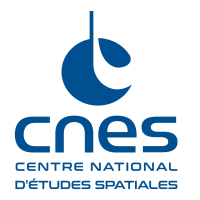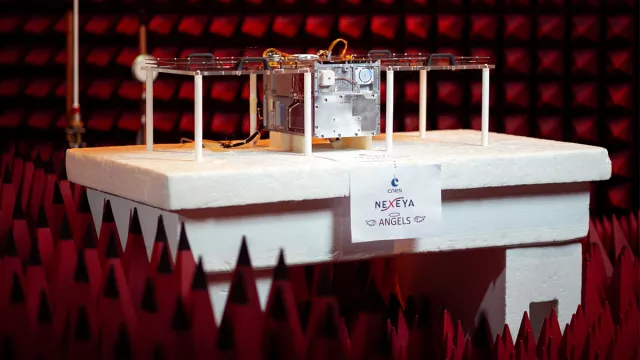Tipping the scales at just 20 kilograms, ANGELS is the first French commercial nanosatellite. It is carrying the first miniaturized Argos system instrument, called Argos-Neo.
Key information
| Mission | Initiate a line of French commercial nanosatellites |
|---|---|
| Domain | Earth observation, telecoms, navigation |
| Start date | 18 December 2019 |
| Partners | Hemeria (+ Thales Alenia Space with Syrlinks for the Argos-Neo instrument) |
| Where | 500-km polar orbit |
| Scheduled lifetime | 2 years + 3-year extension |
| Status | In service |
Key figures
- < 20 kg (satellite)
- 1.5 kg (Argos-Neo instrument)
- 2.5 years from development to launch
Key milestones
- 18 December 2024: End of mission
- October 2020: Mission in-orbit commissioning
- August 2020: Satellite in-orbit checkout
- 18 December 2019: ANGELS satellite launched by Soyuz
- September 2019: Satellite Operational Qualification and Acceptance
- October 2018: Critical Design Review (CDR)
- October 2017: Preliminary Design Review (PDR)
- March 2017: Kick-off
Project in brief
ANGELS (Argos Neo on a Generic Economical and Light Satellite) is the first nanosatellite designed and developed by French industry with support from CNES. It is carrying Argos-Neo, an instrument 10 times smaller and consuming three times less power than the generation of Argos instruments currently in orbit.
CNES and French firm Hemeria co-funded and developed ANGELS with a resolutely Newspace approach to governance, design, development and testing, systematically employing miniaturized commercial-off-the-shelf (COTS) components. This approach came with a certain degree of risk, but enabled big reductions in costs and lead times.
The ANGELS project got underway in March 2017 and the mini-satellite was orbited on 18 December 2019 by a Soyuz launcher from the Guiana Space Centre (CSG). After two years in orbit, ANGELS successfully demonstrated its performance and CNES and Hemeria signed an agreement to extend the mission a further three years.
CNES’s role
CNES co-funded and co-developed ANGELS.
CNES contact
CNES Project Leader
Laurène Gillot
E-mail: laurene.gillot at cnes.fr


